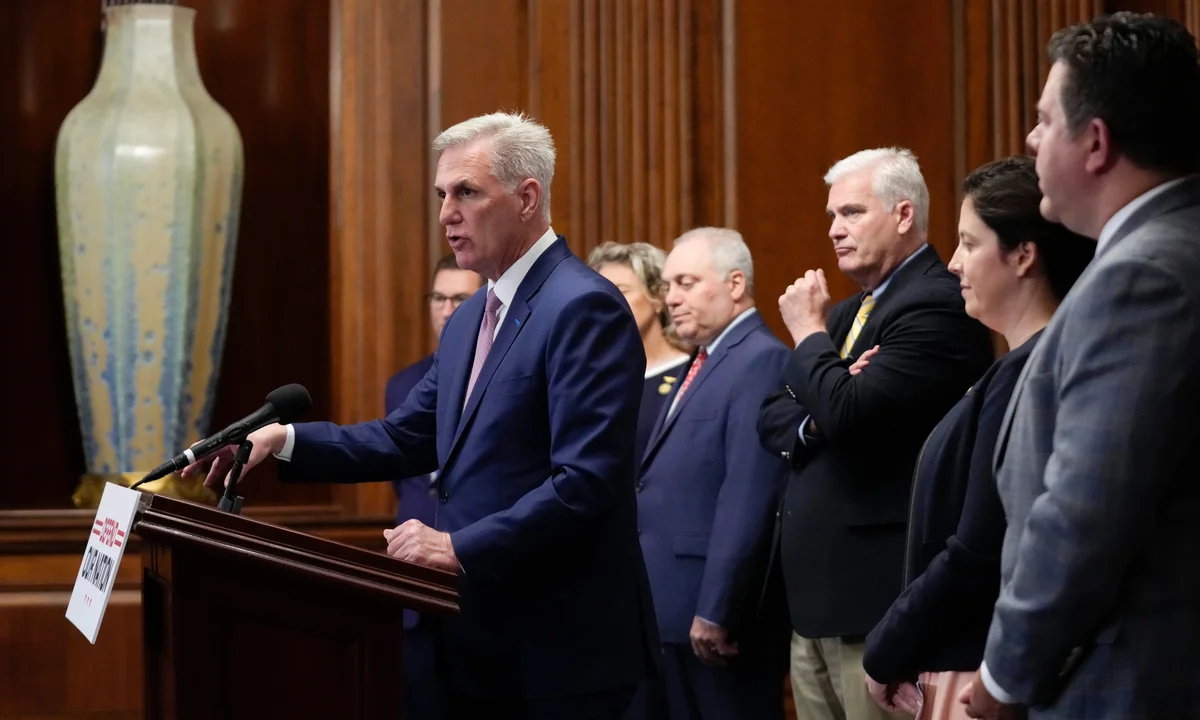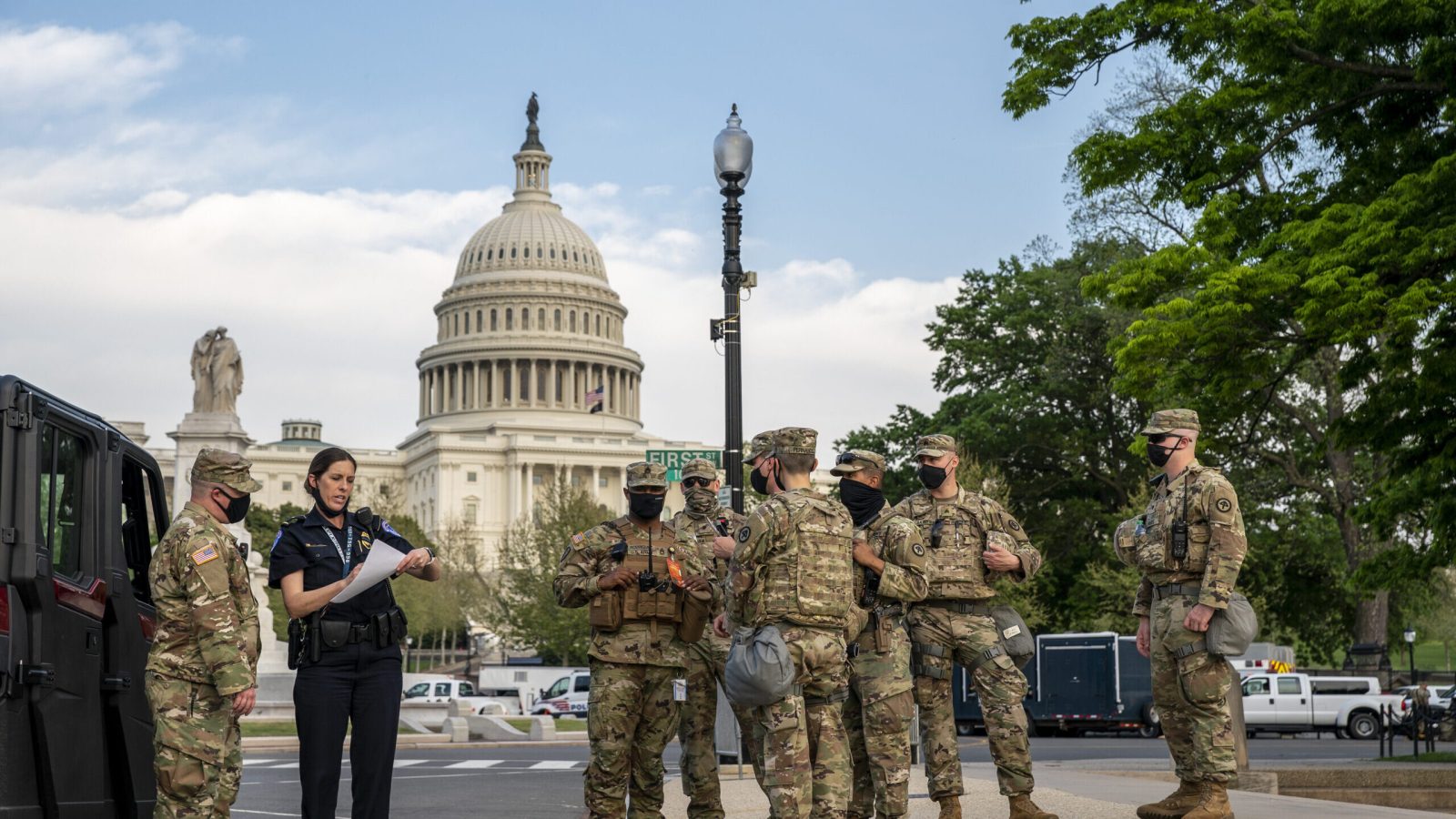“We’re removing the woke elements from the military,” asserted Rep. Ralph Norman, R-S.C. “We’re working to restore a conservative foundation to this country.”
Rep. Tim Burchett, R-Tenn., added, “It’s demoralizing for our troops when we see leaders in dresses or drag shows.”
Conservatives believe that the battleground may now be within the Pentagon. Republicans aimed to eliminate “woke” policies from the armed forces through this year’s defense policy bill.
“My amendment seeks to ban Critical Race Theory (CRT) from any military instruction,” boasted Rep. Michael Waltz, R-Fla.
“We are focused on building a national defense and military aimed at combat, not on social engineering wrapped in a uniform,” stated Roy.
The House Armed Services Committee approved an initial version of the annual defense plan by a vote of 58-1.
This package might have passed with a coalition of Democrats and Republicans, as lawmakers had historically approved the defense bill on a bipartisan basis for 62 years. However, this year may be different.
With House Speaker Kevin McCarthy, R-Calif., holding only a four-seat majority, he allowed conservatives to voice their priorities on this legislation, even if those priorities might not be included in the final version.
House members submitted over 1,500 amendments to the annual defense policy bill. The process of live amendments on the floor is dynamic, and the final outcome of the bill can change as amendments are adopted or rejected.
This means that lawmakers’ support for the bill may shift as it evolves. Some lawmakers who supported the bill initially might oppose it if it changes significantly, while others might support it if it now includes provisions they favor.
This year’s defense bill saw little debate about missiles and troops, but once amendments were introduced, the focus shifted to issues such as abortion, transgender surgeries, and diversity initiatives.
“We are voting to reject this left-wing, socialistic, woke agenda,” declared Rep. Mike Collins, R-Ga., on the floor. “Now we can refocus on protecting the citizens of this country.”
Conservatives sought to prevent service members from using the military’s health plan to cover transgender treatments and to restrict books with “radical gender ideology” from military libraries. Burchett proposed an amendment to require men to register for the draft.
“If these individuals want to be treated as men, they need to act like men,” said Burchett. However, Burchett’s proposal did not receive formal consideration on the floor.
A major issue was a conservative effort to cut reimbursements for troops seeking abortions across state lines. “It seems like House Republicans want to return to the 1950s,” said House Democratic Caucus Chairman Pete Aguilar, D-Calif.
House Republicans, including Republican Conference Chair Rep. Elise Stefanik (R-NY) (center), listen to Majority Leader Steve Scalise (R-LA) speak at a news conference at the U.S. Capitol.
There was concern that the military culture clash could jeopardize the entire defense bill. Some Republicans worried that the conservative social policy issues might be too extreme.

“We were told we wouldn’t interfere with women traveling out of state. What are we doing this week? The NDAA? Potentially interfering with women traveling out of state,” said Rep. Nancy Mace, R-S.C.
“We have an opportunity to show compassion to women this week. I hope we don’t mess it up. I hope we don’t drop the ball.”
Despite her initial concerns about the abortion provision, Mace appeared to support it, stating that research indicated the amendment did not affect post-procedure leave and that the military generally doesn’t reimburse travel for elective procedures.
She also noted that the provision was unlikely to pass the Senate. Democrats focused heavily on the abortion issue.
“It’s off the table,” said Rep. Adam Smith, D-Wash., the top Democrat on the House Armed Services Committee.
“If Republicans insist on including it, we won’t have a defense policy bill this year. Even if by some miracle the Senate passed it, President Biden would veto it.” Democrats criticized the GOP for including the amendment.
“This is an insult to all who serve, especially women in uniform,” said Rep. Pat Ryan, D-N.Y., an Army veteran and West Point graduate.
“They are being told their service and willingness to risk their lives don’t matter. They don’t receive health care services, including reproductive health care. This is un-American.”
Rep. Jamaal Bowman, D-N.Y., labeled the legislation as a “culture war document.”
The House eventually passed the bill by a vote of 219-210. The social issue amendments garnered votes from skeptical conservatives.
Four Republicans voted against the bill, while four Democrats voted in favor. More Democrats might have supported the bill if it had not deviated so far from the center.
“The far right hijacked our national security,” declared Ryan.
The House rejected an amendment by Rep. Marjorie Taylor Greene, R-Ga., to cut funding for Ukraine. Despite this, Greene voted in favor of the bill, as McCarthy appointed her to a conference committee to negotiate the final version with the Senate.
“That allows me to be a voice in the room to discuss removing money for Ukraine,” said Greene. However, Democrats reminded Republicans that the House version is not final.
“We are going to remove the extreme elements that Republicans have inserted into the National Defense Authorization Act,” said House Minority Leader Hakeem Jeffries, D-N.Y., referring to some provisions as “malignant.”
Conservatives warn that the bill must not deviate too much from its current form or they might oppose it. “Striking that balance should be much closer to our position than simply deferring to whatever the Senate decides,” said Chip Roy.
Conservatives are watching McCarthy closely, recalling that he previously struck a deal with Democrats and President Biden on the debt ceiling, which saw more Democratic votes than Republican ones.
This means McCarthy could face a significant challenge with the “must-pass” defense bill in the near future.







Leave a Reply